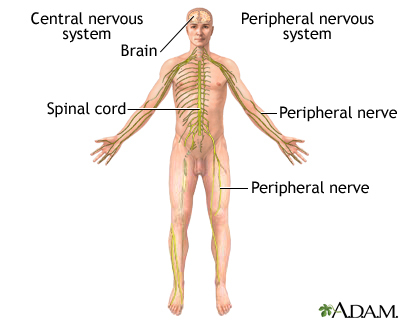Mikah’s Story
Living a normal life with a rare form of glioblastoma One day in January 2018, Mikah Phillips came home from school with a headache. After it persisted, his…

Update your location to show providers, locations, and services closest to you.
A neurologic deficit refers to abnormal function of a body area. This altered function is due to injury of the brain, spinal cord, muscles, or nerves.
Examples include:

Deluca GC, Griggs RC. Approach to the patient with neurologic disease. In: Goldman L, Schafer AI, eds. Goldman-Cecil Medicine. 26th ed. Philadelphia, PA: Elsevier; 2020:chap 368.
Klatt EC. The central nervous system. In: Klatt EC, ed. Robbins and Cotran Atlas of Pathology. 4th ed. Philadelphia, PA: Elsevier; 2021:chap 19.

Living a normal life with a rare form of glioblastoma One day in January 2018, Mikah Phillips came home from school with a headache. After it persisted, his…

March 18, 2019
Three renowned neuroscientists from top U.S. research institutions will join the newly established Norman Fixel Institute for Neurological Diseases at UF…
Department of Neurology, Department of Neuroscience, Department of Pathology, Immunology, and Laboratory Medicine, +5 more
